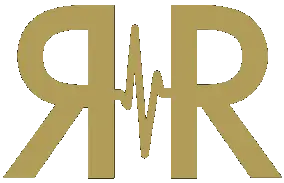Did you know that your resume is only half the story?
You’ve probably heard by now that your resume is the most important document you’ll ever create in your career. And that’s true! But don’t forget about the cover letter.
Many people focus so much on making their resume stand out, that they forget to put effort into their cover letter. With 53% of employers saying a resume alone just won’t cut it, it’s obvious that the cover letter is just as important!
So what is the purpose of a cover letter? What should it include? And when should you write one? Keep reading to find out.
What Is A Cover Letter?
A cover letter is a one-page document that you submit as part of your job application. It should be sent along with your resume, and give additional information about your skills and experience and demonstrate how you would be a valuable asset to the company.
Not every job will require a cover letter, but when one is requested, it’s still an important part of your application because it gives you a chance to sell yourself to the hiring manager. It’s an opportunity to show them that you’re not just a list of qualifications on paper, but a well-rounded candidate who is excited about the job.
Neglecting to write a cover letter – even when it’s not required – can be one of the biggest mistakes you make during your job search and can significantly reduce your chances of getting an interview.
What Is The Main Purpose Of A Cover Letter?
In the past, the cover letter served as the cover of your resume. It was a one or two-page paper document that summarized your skills and experience, and while it was important, it wasn’t given as much attention as the resume.
Nowadays, despite being mostly electronic, the cover letter is still crucial and has taken on a new purpose. Its main goal is to get the hiring manager’s attention and convince them to read your resume. In other words, its purpose is to sell you as a candidate!
To do this effectively, your cover letter should be short, sweet, and to the point. It should also be specific to the job you’re applying for – generic letters are a huge turnoff for recruiters.
A cover letter should also give an employer a sense of your personality and communication style. So it’s important to make sure that your cover letter is well-written and error-free!
Example of Cover Letter
{Insert
Company
Address}
ATTENTION: {INSERT POSITION YOU’RE APPLYING TO}
Date you’re submitting this document
Dear Hiring Team,
I would formally like to express to you my interest in the {INSERT JOB TITLE} opening with your team. My background encompasses over X years of experience in areas including (insert a few things you’ve done within your career that align with the role you’re applying for). I pride myself on my ability to (insert information regarding your biggest skills across all career experience). I continuously (information that aligns with the job posting). My skills have developed into expertise, which can be brought to your organization.
Throughout my career, I have (include your overarching skill – example: worked in various corporate and non-profit roles, allowing me to gain a unique perspective). Currently, as a (current title), I (some of the things you do in your current job that align with the role you’re looking for). By (insert a process improvement or bigger implementation), I consistently (result of t0his process improvement or implementation). Some of my key accomplishments thus far in my career include:
- Process improvement, achievement, quantitative value, team collaboration, etc.
- Process improvement, achievement, quantitative value, team collaboration, etc.
- Process improvement, achievement, quantitative value, team collaboration, etc.
As a (current title or professional – example: sales professional), I successfully (something you consistently do) and meet objectives. From my experiences noted here and evident on my resume, I would be an excellent addition to your organization. I look forward to hearing back and discussing my qualifications further with the hiring team.
Sincerely,
Name
9 Important Parts Of A Cover Letter
Now that we’ve answered the question, “what is the purpose of a cover letter?” it’s time to take a closer look at what should be included in one.
A great cover letter will have the following nine essential parts:
Company Address
The address of the company you’re applying to should be included at the top of the page, on the left-hand side.
Position You Are Applying For
After the company address, you should include the title of the position you’re applying for. This will help the hiring manager see right away if you’re a good fit for the job.
Date of Submission
Beneath the position title, include the date that you’re submitting your application.
Greeting
The greeting of your cover letter is just like the greeting of a formal letter. You should use “Dear” followed by the hiring manager’s title and last name. If you don’t know the name of the hiring manager, you can use “Dear Hiring Team.”
Introduction Showing Interest In Position
After the greeting, the first paragraph of your cover letter should be an introduction where you show your interest in the position. You can mention why you think you would be a great fit for the role and what you can bring to the table (e.g. meeting business goals, generating revenue).
Qualifications / Background
In the second paragraph of your cover letter, share your relevant qualifications and background information. Keep in mind that the cover letter is not an opportunity to regurgitate everything on your resume. Instead, it should focus on a few key points that you want the hiring manager to know about you and that will make you stand out.
Key Accomplishments
The third paragraph of your cover letter is where you can sell yourself to the hiring manager. Choose accomplishments and skills that are most relevant to the job you’re applying for, and focus on how they will benefit the company.
Call To Action
In the final paragraph, pinpoint what you do and why you’re successful to end your cover letter. Then, encourage the hiring team to read your resume and invite them to contact you to discuss the job further. Thank them for their time, and let them know how they can reach you.
Signature
Your cover letter should end with a formal signature that includes your full name, title, and contact information. If you’re sending a physical letter, you would sign your name above your typed name. If you’re sending an email, you would simply include your typed name followed by your contact information.
When To Write A Cover Letter
There are a few occasions when you might need to write a cover letter. The most common is when you’re applying for a job, but there are other times when you might need one as well.
For example, you might need to write a cover letter when you’re applying for an internship, scholarship, or grant. You might also need to write a cover letter if you’re submitting an article to a journal or magazine, or if you’re sending a proposal to a potential client.
No matter what the occasion, the key to writing a great cover letter is to make it specific to the job or opportunity you’re applying for.
Cover Letter Writing Professionals
If you’re not sure how to write a cover letter that will get results, don’t worry – we can help! At The Resume Rescue, our team of career experts can help you craft a cover letter that will get you the job you want.
Don’t wait – contact us today and let us help you take your career to the next level!
Book Your Free Consultation Today!




